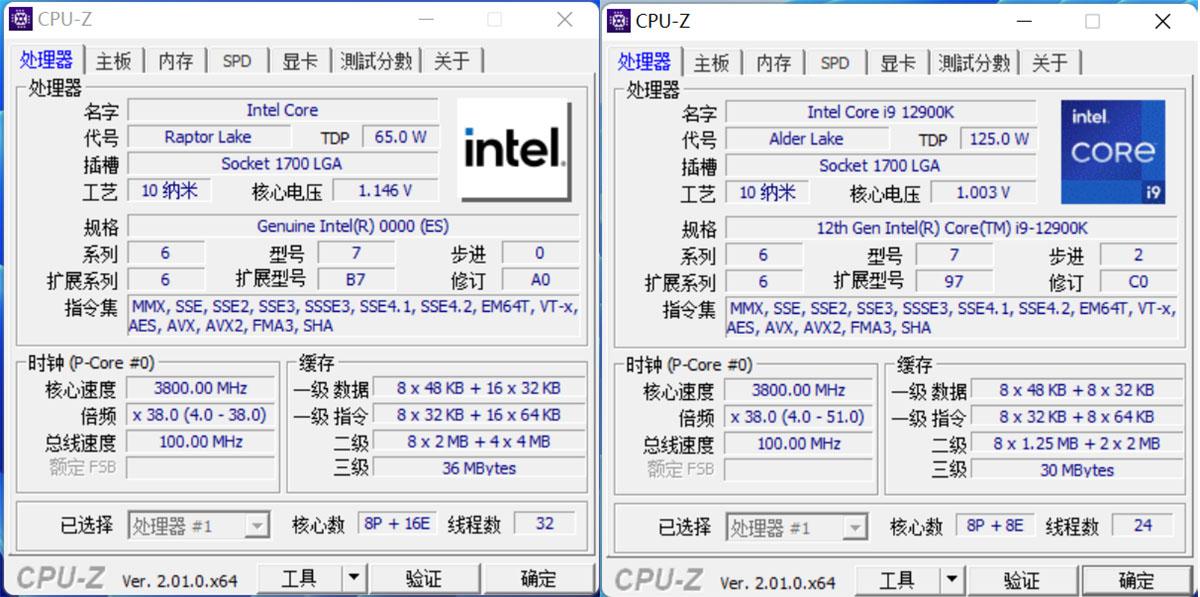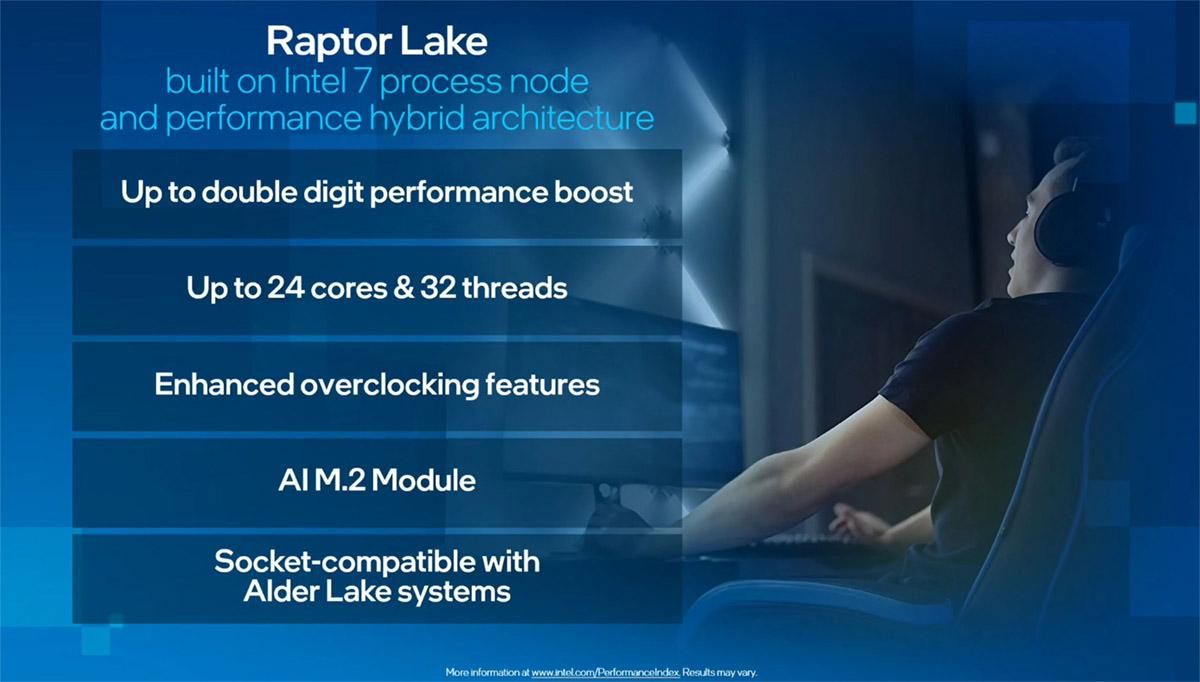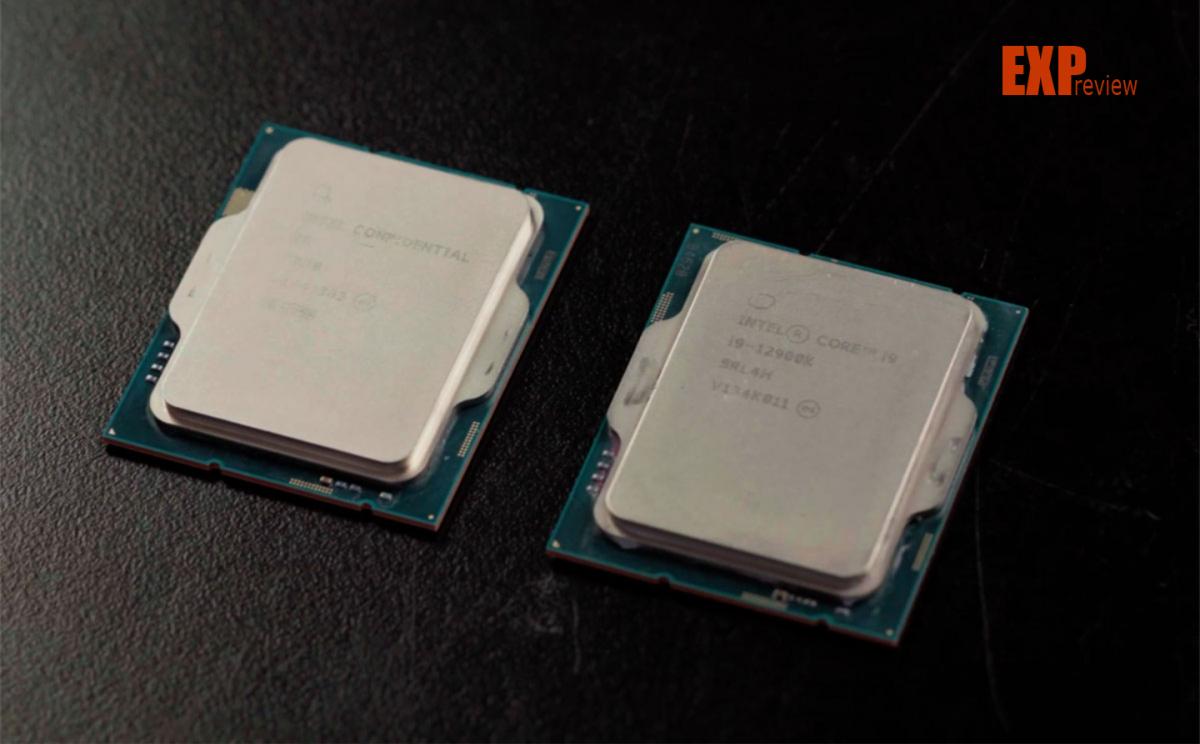Intel's upcoming 13th generation Core CPU was subjected to a battery of benchmark tests. Expreview shows it is around 20% faster than the 12th generation Intel Core i9-12900K. In certain instances, Alder Lake outperforms Raptor Lake by 10% or more.
The RL was put to the test against a Core i9-12900K configured to the same speed since this upcoming 13th generation Core CPU from Intel is only capable of operating at 3.8 GHz. A Z690 motherboard, 32 GB of DDR5 RAM clocked at 5200 MHz, and a GeForce RTX 3090 Founders Edition graphics card was used for both CPUs. The extra eight E-Cores might affect some benchmarks, but according to Expreview, the 13th generation CPU is about 20% faster than the 12th generation CPU.
The ES sample performs 51.5 percent faster in the double precision floating point test in Sisoft Sandra 2021, but merely between 15 and 25 percent faster in the majority of other tests. Other testing show it to be up by 3% to 25%, with multithreaded benchmarks showing the highest gains. In single-threaded tests like Pov-Ray and Cinebench, Alder Lake outperforms Raptor Lake by 10% or more. The low clock speeds of Raptor Lake may be the reason why most game testing favor Intel's 12th generation over the 13th generation ES sample. Alder Lake is ahead by 2% to 9%. Later this year, Raptor Lake will be released with enhanced UEFI support and drivers. Although this provides a preview, the restricting clock speed may also have an impact on the ultimate performance. Check out Expreview's benchmarks.
In terms of gaming, the 13th generation ES appears to perform somewhat worse than the 12th generation of the same frequency, however the majority of the differences are tiny and within the error range. Power usage will not be measured. The frequency of this ES is too low to be meaningless. Even 13900 without K has a greater frequency than it.
The 13th Generation Raptor Lake ES CPU from Intel is Benchmarked








